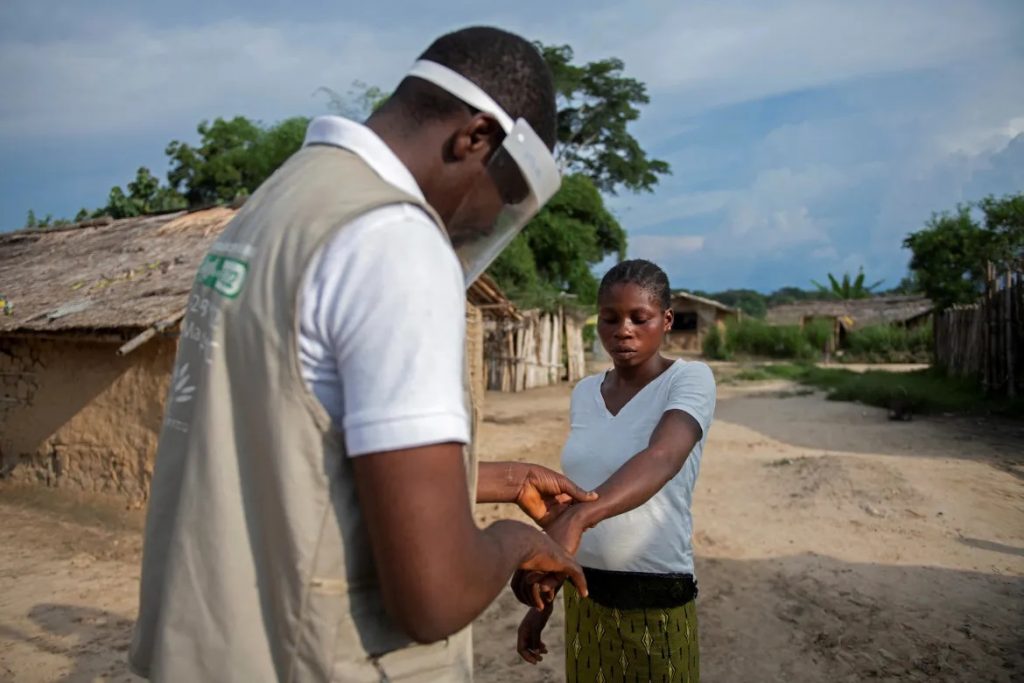
A new strain of the mpox virus is spreading rapidly along the eastern border of the Democratic Republic of Congo (DRC), causing significant concern among health officials.
This virus, which can cause severe lesions across the body and potentially be deadly, is making many individuals very ill.
While the current outbreak has primarily been driven by sexual transmission, there is evidence that this strain can also be spread through close skin-to-skin contact.
Global health experts are particularly alarmed, with one describing it as the “most dangerous strain yet,” due to its potential for cross-border and international spread.
The mpox epidemic of 2022 was controlled through vaccination, but access to vaccines and treatments in the DRC is limited. Local health officials warn that the virus could easily spread to other countries.
Leandre Murhula Masirika from the health department in South Kivu province, one of the hardest-hit areas, expressed his fear that the virus could cause significant damage as it crosses borders unchecked.
Mpox cases have been rising in the DRC for decades, and according to the World Health Organization (WHO), there have been nearly 8,000 cases this year, including 384 deaths—almost half of these in children under 15.
The outbreak in South Kivu province, near the borders with Rwanda, Burundi, and Uganda, is particularly worrying. Recent lab tests have identified a new mpox strain in the area, which appears to have mutations aiding its spread among humans.
In Kamituga, a mining town where the strain is believed to have originated among sex workers in September 2023, cases are increasing.
Those affected now include schoolchildren, healthcare workers treating mpox patients, and entire households. The strain has also been detected in several border cities, including Goma, which borders Rwanda.
The WHO has warned that this poses a “renewed risk of cross-border and international spread,” potentially leading to more severe illness.
Scientists have expressed concerns that this new strain may spread more easily and cause more severe disease and deaths, particularly in children and adults.
There is also the risk of asymptomatic spread, where individuals without symptoms unknowingly transmit the virus.

Professor Trudie Lang from the University of Oxford described the current case numbers as “the tip of the iceberg,” highlighting the uncertainty around the spread and protection offered by current vaccines.
The global outbreak of mpox in 2022, driven by sexual transmission among men who have sex with men, was caused by the Clade II mpox virus. The new strain, from the more deadly Clade I, is distinct and can spread through non-sexual contact, making it more dangerous.
This strain has led to infections in many children, including newborns during pregnancy, and has caused complications such as miscarriages and long-term health issues in some patients.
In the DRC, the new strain has a mortality rate of 4% in adults and 10% in children. John Claude Udahemuka, a lecturer at the University of Rwanda, noted that the first case likely involved a man who had sex with multiple women in different locations.
The disease initially spread during the rainy season, when movement was limited, but there are concerns that the current dry season and upcoming school holidays could increase transmission.
Masirika from South Kivu’s health department emphasized the importance of vaccinating sex workers and health workers to reduce cases. African researchers have called for urgent action to improve research into the mpox virus and accelerate vaccine distribution.
The WHO has also expressed concern about the ongoing development of the outbreak in the DRC, citing limited public awareness, lack of treatment kits and vaccines, and the country’s numerous other health priorities as contributing factors. The risk associated with mpox in the DRC “remains high,” according to the WHO.
Source-BBC





